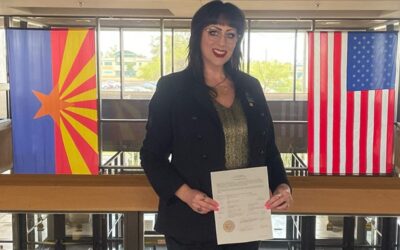By Corinne Murdock |
Arizona now prohibits health care providers from using an individual’s disability as a disqualification from an organ transplant. The sole exception would be in the case that a patient’s disability poses a medical problem when receiving an organ transplant, excluding that patient’s ability to comply independently with the procedure.
The legislation also requires health care facilities to accommodate their organ transplant-related services for disabled patients, such as communications and counseling. It included specific provisions for patients with hearing and visual impairments, as well as cognitive, neurological, developmental, or intellectual disabilities.
Comprehensive information on all organ transplant centers’ policies regarding patients with disabilities doesn’t exist — only studies exist. A 2019 study from the National Council of Disability, a federal agency, confirmed that to be the case, observing a lack of transparency and consistency concerning organ transplant policies. What’s more, the council reported that individuals with disabilities and their families actually face pressure to donate organs. One of the most comprehensive studies, conducted in 2008, estimated that 43 percent of organ transplant centers “always” or “usually” deny children with a neurodevelopmental disability, while about 39 percent “rarely” or “never” do.
One Arizona mother, Felicia (Josie) White testified to the House Health & Human Services Committee that she supported this bill because Phoenix Children’s Hospital policy didn’t confirm that they would approve her daughter for a heart transplant, due to her having Down Syndrome. The White family felt compelled to seek treatment across the country, 3,000 miles away, in Boston, Massachusetts.
“We know individuals with Down Syndrome live full and fruitful lives well into adulthood. If transplant centers can teach illiterate, non-English speaking parents to dose meds, there’s no reason someone with Down Syndrome could not be taught,” said White. “I understand that organ allocation is a limited resource, but I also know that labeling anyone with cognitive delays ‘unable to transplant’ is a slippery slope that could include everything from ADHD to who knows what.”
Another mother, Andrea Temarantz, shared that her son also has Down Syndrome and would be jeopardized if he needed an emergency organ transplant. Temarantz informed the legislators of the studies on organ transplant discrimination. She insisted that the federal Americans with Disabilities Act (ADA) already prohibited such discrimination, but that there weren’t any enforcement mechanisms to protect patients with disabilities from ADA violations in Arizona.
“Every life is precious, and no one should be blocked from a transplant because of stereotypes about persons with disabilities,” said Temarantz.
Governor Doug Ducey signed that anti-discrimination bill, HB2659, into law in March.
The bill received no opposition in the state legislature. Both the House and Senate, as well as their respective committees, passed it unanimously.
State Representative Steve Kaiser (R-Phoenix) sponsored the bill. It received an endorsement from the Center for Arizona Policy (CAP).
Corinne Murdock is a reporter for AZ Free News. Follow her latest on Twitter, or email tips to corinne@azfreenews.com.








